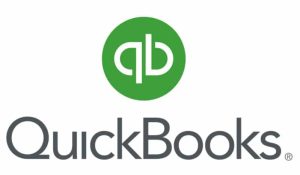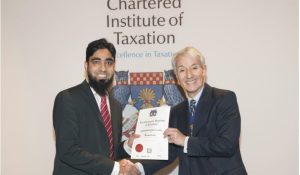Inheritance & Trust Tax
Inheritance & Trust Tax
Inheritance tax: what is it?
Inheritance tax is a tax levied on the assets (the property, money and possessions) of someone who has died (after inheritance tax allowances have been deducted). The standard rate of inheritance tax is 40. A lifetime IHT is also payable in certain instances if there is a chargeable transfer (e.g. transfers to almost all trusts) that exceeds the lifetime allowance.
With careful planning, however, you can reduce your IHT liability to zero.
Who has to pay?
The death of a loved one is a traumatic experience – and having to deal with tricky legislation governing what happens to that person’s assets does not make the process easier. Fortunately an experienced tax accountant or chartered tax adviser will be able to relieve some of that burden; and, on this page, we will talk through some of the key facts surrounding inheritance tax planning.
In line with the Inheritance Act 1984, there is a chance that, should someone die in England and Wales, part of their estate will be taxable. However, there is a threshold – known as the ‘nil rate band’ – prior to which no estate tax is payable. This has been fixed at £325,000 since 6th April 2009.
The existence of the ‘nil rate band’ means that if the gross value of the deceased’s assets (including any gifts made within the preceding seven years) is less than £325,000, inheritance tax will not be due. The enhanced residence nil rate band is an additional benefit: this extra allowance becomes available if you leave your main residence to your lineal descendants (including children and grandchildren).
Next Step:
Please contact us if you need further advice, have any questions about our services, or would like a free consultation or a fixed quote.
Want further accounting advice? Get in touch with your local IBISS & Co branch
Contact Us Online
Estate tax: how can we help?
Through proper planning and expert consultation, it is possible to reduce inheritance tax bills – and quite substantially. If you instruct IBISS & Co to assist with your inheritance tax planning, we will discuss your financial position with you in detail, and work together to find the best strategy to maximise the reliefs and exemptions available. There are several options to be explored – such as the formation of a family investment company, which is covered elsewhere – but, in brief, our approach may include:Consideration of marriage/partnership possibilities.
Within the Inheritance Act 1984 (section 18), there is a provision for tax-free transfers of assets to spouses/civil partners. There is also something called a ‘transferrable nil rate band’, which allows the surviving spouse to inherit any of the deceased’s unused nil rate band.
Consideration of available reliefs.
Business property relief is a viable option for many entities. This relief is given at a rate of 100 in certain circumstances (for transfer of a business or an interest in a business, for instance) and at 50 in other cases (for land or machinery used mainly in the course of business). If part of the estate falls into the farming sector, agricultural property relief may also be an option. Depending on the circumstances, post mortem relief, quick succession reliefs and taper reliefs may apply. Your IBISS & Co tax accountant will discuss the options in detail with you and formulate a bespoke strategy that will reduce your estate tax liability to the highest degree.
Consideration of gifts and transfers.
During your lifetime, you can give away £3,000 worth of gifts per tax year, in addition to wedding gifts (up to £5,000 for a child, or £2,500 for a grandchild) without these being added to the value of your estate. This is known as your annual exemption, and this can be carried forward (but only for one year). You can also give away as many gifts of up to £250 per person as you like during the tax year, provided you haven’t already used another exemption for the individual in question.
Gifts to charity, too, are often exempt from inheritance tax. The estate may only need to pay income tax at a rate of 36 (reduced from 40) if 10 (or more) of the net value has been left to charity.
If you intend to give away your home to your children (including adopted, step, and foster children), the threshold (in essence the ‘tax-free allowance’) increases from £325,000 to £500,000 (by 2020). Moreover, certain exemptions are available in the event of making other gifts: to charity, for example.
Consideration of potential pitfalls.
Do bear in mind that some gifts made whilst you are still alive can be taxed after your death, however; so it is worth consulting a chartered tax adviser to ensure that you plan for this properly. For example, if you wish to gift property and do not want the recipient to pay any estate tax in the event of your death, you must demonstrate that you relinquish your entitlement to it – meaning that you would need to move out, or pay rent to the new owner.
If you were to die less than three years after the transfer of the gift, the full inheritance tax rate of tax (40) would be incurred for any part of the gift above the nil rate band. Should this be the case, the recipient may be eligible for ‘taper relief’ – one of the many potential options that your accountant or tax advisor will discuss with you.
We hope the examples above have shed some light on this sensitive subject, and have shown that – with careful consideration – estate tax does not need to be a source of undue pressure.
Experts in all areas of tax advice and inheritance tax planning, there are many ways in which IBISS & Co can help you ensure that you maximise your bequests to your loved ones. Please contact us today for a discreet, no-obligation discussion about your plans.
Next Step:
Please contact us if you need further advice, have any questions about our services, or would like a free consultation or a fixed quote.
We Help Our Clients
- HMRC Self employed registration
- Self Assessment submission
- Unlimited accountancy support
- Dedicated client management
- VAT registration and filing - additional cost
- Online accounting software - additional cost
- Free Open Banking links - additional cost
- List Easy bank reconciliation - additional cost
- Receipt scanning app - additional cost
- Business Mileage app - additional cost
- Discounts on Mortgage services and Business Insurance
*from £30 +VAT (Per Month)
- All your accountancy questions answered
- Statutory Year End accounts
- Corporation Tax filing
- Phone and email support
- Company formation, registration for company taxes & Registered Office address
- Timely Company Filings
- Tax Planning
- Simple online accounting software
- Free Open Banking links
- Easy bank reconciliation
- Receipt scanning app
- Business Mileage app
- Discounts on Mortgage services and Business Insurance
*from £70 +VAT (Per Month)
- Self Assessment
- MTD VAT Submissions
- Annual Accountancy Health check
- Our speediest support & service
- Unlimited phone and email support
- All your accountancy questions answered
- Registration for company taxes & Registered Office address
- Timely Company Filings
- Detailed Tax Planning
- Pro online accountancy software
- Free Open Banking links
- Easy bank reconciliation
- Receipt scanning app
- Business Mileage app
- Discounts on Mortgage services and Business Insurance
- References
*from £150 +VAT (Per Month)
- Income Tax Planning
- Overseas Workday relief
- Effective Tax planning for property landlords
- Capital Gain Tax Mitigation
- Inheritance tax and succession planning
- Property Incorporation
- Let property campaign filings
- Worldwide disclosure facility
- Non resident Non domicile taxation
- HMRC enquiries and Tax Investigations
- Super deduction tax planning -Budget 2021
- Family owned business tax saving techniques
- VAT on property
- Stamp duty land taxes
- Corporate structure planning including Groups
*from £150 +VAT (Per Hour)
Reviews






















